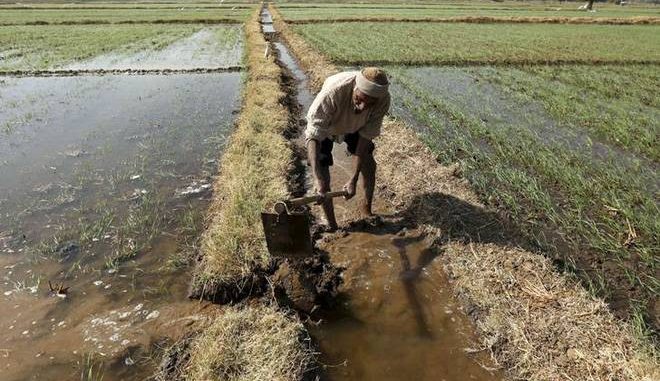
By Ashwani Maindola
New Delhi: Radha Mohan Singh, minister of agriculture and farmers’ welfare, Government of India, unveiled a Model Agriculture Produce and Livestock Contract Farming and Services (Promotion & Facilitation) Act, 2018, whose objective is to provide facilitation to farmers and incentivising the sponsors to enter into a contract.
With a view to integrate farmers with bulk purchasers, including exporters, agro- industries, etc., and for better price realisation through mitigation of market and price risks to the farmers and ensuring smooth agro raw material supply to the agro industries, finance minister Arun Jaitley, in the Budget for 2017-18, announced the preparation of a Model Contract Farming Act and circulation of the same to the States for its adoption.
Singh added that contract farming shall be out of the ambit of the Agricultural Produce Market Committee (APMC) Act and the farmer producer organisations (FPOs) shall have a major role in promoting the contract farming and services contract. On behalf of farmers, they can enter into agreement with the sponsor.
“The Act lays special emphasis on protecting the interests of the farmers, considering them as the weaker of the two parties entering into a contract,” he added.
G Chandrashekhar, economic advisor, IMC Chamber of Commerce and Industry, said, “It is the right move towards doubling the farmers’ incomes.” He added that the Model Contract Farming Act was a much-needed breakthrough legislation for the country’s agriculture sector.
“It seeks to promote a legal agreement between an entrepreneur and a group of farmers. It is win-win for growers as sellers and processors as buyers and users of crops and commodities,” said Chandrashekhar.
“For a long time, the enforceability of the contract has been a vexatious issue in the promotion of contract farming, this is sought to be addressed by formally recording contracts and organising a simple dispute resolution mechanism,” he added.
“It is important for entrepreneurs as well, on the one hand, and groups of growers, on the other, to develop trust in each other,” Chandrashekhar said.
“The Act will help growers cultivate crops with greater confidence, as the buyer is known and sale is assured. The buyers can win the trust of growers by helping provide services such as input supplies, agronomic advice, and so on,” he added.
Meanwhile, in the Model Act, in addition to contract farming, services contracts all along the value chain, including pre-production, production and post-production, have been included.
A Registering and Agreement Recording Committee, or an officer for the purpose, at the district/block/taluka level, for the online registration of the sponsor and the recording of agreement, was also provided.
Further, contracted produce is to be covered under crop/livestock insurance in operation, while no permanent structure can be developed on farmers’ land/premises.
The Act further stated that no right, title of interest of the land shall vest in the sponsor and promotion of FPOs/farmer producer companies (FPCs) to mobilise small and marginal farmers has been provided. Also FPOs/FPCs can be a contracting party if so authorised by the farmers.
Additionally, no rights, title ownership or possession to be transferred or alienated or vested in the contract farming sponsor, etc.
The Act shall ensure buying of entire pre-agreed quantity of one or more of agricultural produce, livestock or its product of contract farming producer as per contract.
The Act also provided a Contract Farming Facilitation Group (CFFG) to promoting contract farming and services at the village/panchayat level.
For dispute settlement, the Model Act said that accessible and simple dispute settlement mechanism at the lowest level possible provided for quick disposal of disputes.
Source: fnbnews.com

Leave a Reply